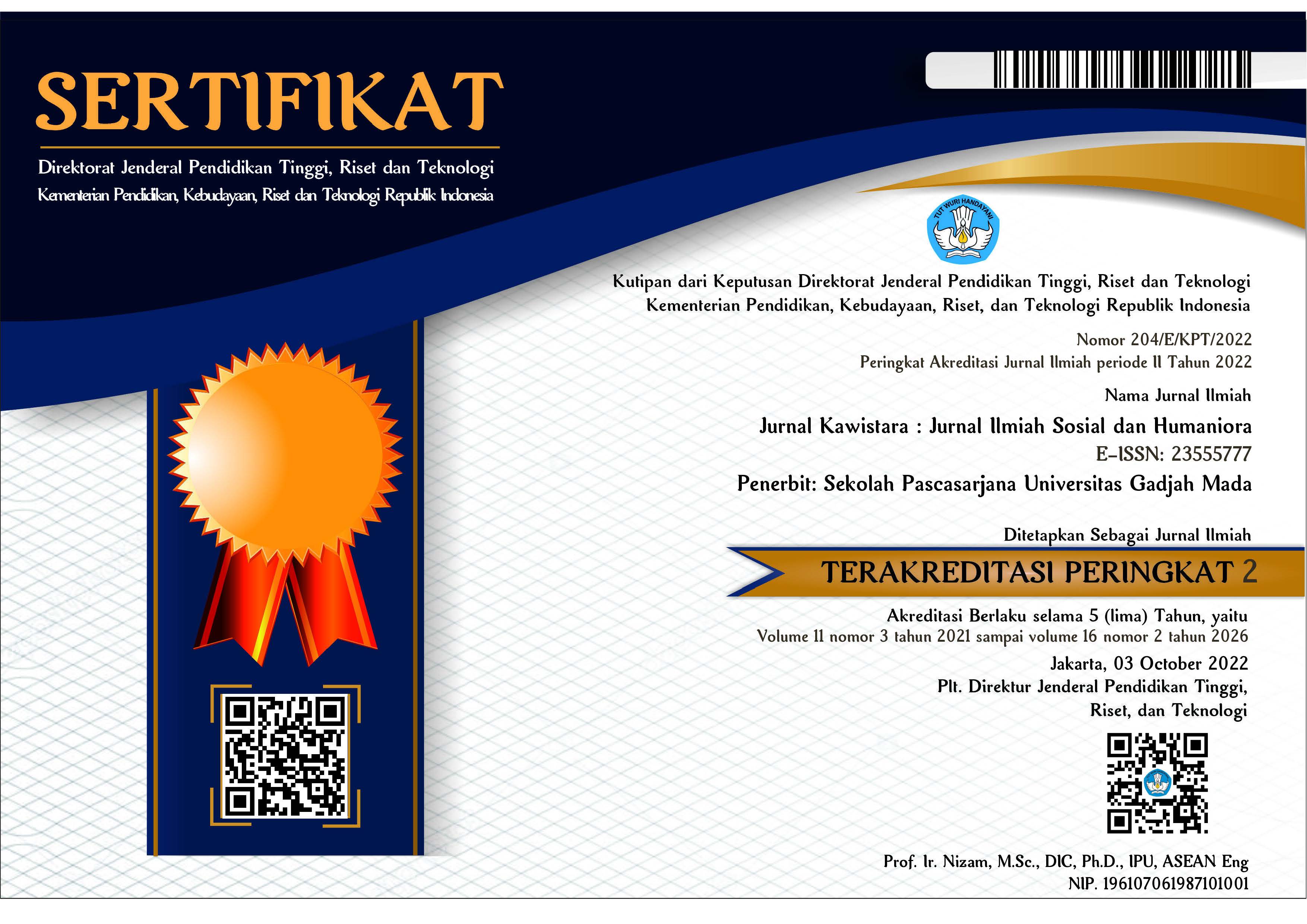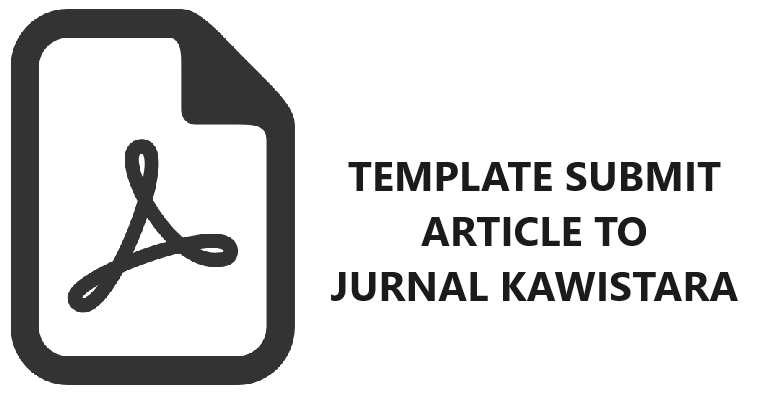POTENSI PENGEMBANGAN EKOWISATA DI NAGARI KOTOBARU, KECAMATAN X KOTO, KABUPATEN TANAH DATAR, SUMATERA BARAT
Firdaus Firdaus(1*), Rio Tutri(2)
(1) Pendidikan Sosiologi, STKIP PGRI Sumatera Barat
(2) Sekolah Tinggi Keguruan dan Ilmu Pendidikan (STKIP) PGRI Sumatera Barat
(*) Corresponding Author
Abstract
In recent years, tourism has been the important economic and social activities in the world. Tourism studies that showed the impacts of tourism activity to economic countries were significant. In Indonesia, the developing of tourism conducted as primary sector to support the other economic sectors, in particularly in both trade and service. The Indonesian tourism development primary is nature and culture. This research aimed to analyze and describe ecotourism potency of Nagari Kotobaru, Kabupaten Tanah Datar as the door to summit of Merapi Mountain in West Sumatera. This research conducted with qualitative approach in 2016. Data was collected with observation, depth interview and document study. The potency ecotourism development was analyzed through SWOT analysis. The result showed that the Nagari Kotobaru strength was in poor and there were some weakness too. Although, Nagari Kotobaru have potencies to be created as an ecotourism area without serious threat. Based on the SWOT analysis, the mode of ecotourism that would be applied to Nagari Kotobari was ecotourism community type.
Keywords
Full Text:
PDFReferences
Abya, H., Khalili, M. M. N., Ebrahimi, M., & Movahed, A. (2015). Strategic Planning for Tourism Industry Using SWOT and QSPM. Management Science Letters, 5, 295–300. http://doi.org/10.5267/j.msl.2015.1.009.
Arida, I. N. S., Baiquni, M., Janianton, D., & Ahimsa-putra, H. S. (2014). Dinamika Ekowisata Tri Ning di Bali: Problematika dan Strategi Pengembangan Tiga Tipe Ekowisata di Bali. Kawistara, 4(2), 111–127.
Björk, P. (20017). Defenition Paradoxes; From Concept to Defenition. In J. Higham (Ed.), Critical Issues in Ecotourism: Understanding a Complex Tourism Phenomenon (pp. 23–45). Elsevier Ltd.
BPS. (2016). Laporan Bulanan Data Sosial Ekonomi.
Chirozva, C. (2015). Community Agency and Entrepreneurship in Ecotourism Planning and Development in The Great Limpopo Transfrontier Conservation Area. Journal of Ecotourism, 14(2–3), 185–203. http://doi.org/10.1080/14724049.2015.1041967.
Damanik, J., & Weber, H. F. (2006). Perencanaan Ekowisata; Dari Teori ke Aplikasi. Yogyakarta: Andi.
Fandeli, C. (2001). Dasar-Dasar Manajemen Kepariwisataan Alam. Yogyakarta: Liberty.
Firdaus, F. (2016). Evaluasi Proyek Pembangunan Sosial Pada Kelompok Masyarakat Kawasan Hutan Mbeliling, Kab. Manggarai Barat, NTT. Jurnal Ilmu Sosial Mamangan, 5(1), 13–22.
Ghorbani, A., Raufirad, V., Rafiaani, P., & Azadi, H. (2015). Ecotourism Sustainable Development Strategies Using SWOT and QSPM Model: A Case Study of Kaji Namakzar Wetland, South Khorasan Province, Iran. Tourism Management Perspectives, 16, 290–297. http://doi.org/10.1016/j.tmp.2015.09.005.
Haryanto, J. T. (2014). Model Pengembangan Ekowisata Dalam Mendukung Kemandirian Ekonomi Daerah; Studi Kasus Provinsi DIY. Kawistara, 4(3), 271–286.
Hijriati, E., & Mardiana, R. (2014). Pengaruh Ekowisata Bebasis Masyarakat Terhadap Perubahan Kondisi Ekologi, Sosial, dan Ekonomi di Kampung Batusuhunan, Sukabumi. Solidity: Jurnal Sosiologi Pedesaan, 2(3), 146–159.
Hill, J. L., & Hill, R. A. (2011). Ecotourism in Amazonian Peru : Uniting Tourism, Conservation and Community Development. Geography, 96(2), 75–85.
Kementrian Pariwisata. (2015). Laporan Kinerja Kementerian Pariwisata 2014. Jakarta.
Kurniawati, R. (2013). Modul pariwisata berkelanjutan.
Latupapua, Y. T., Pudyatmoko, S., Fandeli, C., & Baiquni, M. (2015). Ritual Sebagai Daya Tarik Ekowisata Di Desa Nounea Kabupaten Maluku Tengah. Kawistara, 5(3), 221–328.
Miles, M. B., & Huberman, A. M. (1992). Analisis Data Kualitatif: Buku Sumber Tentang Metode-Metode Baru. Jakarta.: UI Press.
Nepal, S. K. (2004). Indegenous Ecoturism in Central British Columbia: The Potential for Building Capacity in The Tl’azt’en Nations Territories. Journal of Ecotourism, 3(3), 173–194. http://doi.org/10.1080/14664200508668431.
Parker, S., & Khare, A. (2005). Understanding Success Factors for Ensuring Sustainability in Ecotourism Development in Southern Africa. Journal of Ecotourism, 4(1), 32–46. http://doi.org/10.1080/14724040508668436.
Pendit, N. S. (2006). Ilmu Pariwisata; Sebuah Pengantar Perdana. Jakarta: Pradnya Paramita.
Picard, M. (2005). Bali: Pariwisata Budaya dan Budaya Pariwisata. Jakarta: Gramedia.
Pitana, I. G., & Gayatri, P. G. (2005). Sosiologi Pariwisata. Yogyakarta: Andi.
Spillane, J. J. (1987). Ekonomi Pariwisata, Sejarah dan Prospeknya. Yogyakarta: Kanisius.
Sudarmadji, & Darmanto, D. (2014). Dampak Lingkungan dan Risiko Bencana Pengembangan Desa Wisata; Studi Kasus di Desa Wisata Sambi. Kawistara, 4(2), 111–224.
Syamsuridjal, D., & Kaelany, H. (1996). Peluang di Bidang Pariwisata. Jakarta: PT. Mutiara Sumber Widya.
Wahab, S. (1989). Manajemen Kepariwisataan. Jakarta: Pradnya Paramita.
Wearing, S., & Neil, J. (2009). Ecotourism: Impacts, Potentials and Possibilities? (second). elsevier Ltd.
Yoety, O. A. (2006). Pariwisata Budaya: Masalah dan Solusinya. Jakarta: PT. Pradnya Paramita.
Yoety, O. A. (2008a). Ekonomi Pariwisata; Introduksi, Informasi dan Implementasi. Jakarta: Penerbit Buku Kompas.
Yoety, O. A. (2008b). Perencanaan dan Pengembangan Pariwisata. Jakarta: Pradnya Paramita.
Article Metrics
Refbacks
- There are currently no refbacks.
Copyright (c) 2018 Firdaus Firdaus, Rio Tutri

This work is licensed under a Creative Commons Attribution-ShareAlike 4.0 International License.
Jurnal Kawistara is published by the Graduate School, Universitas Gadjah Mada.












